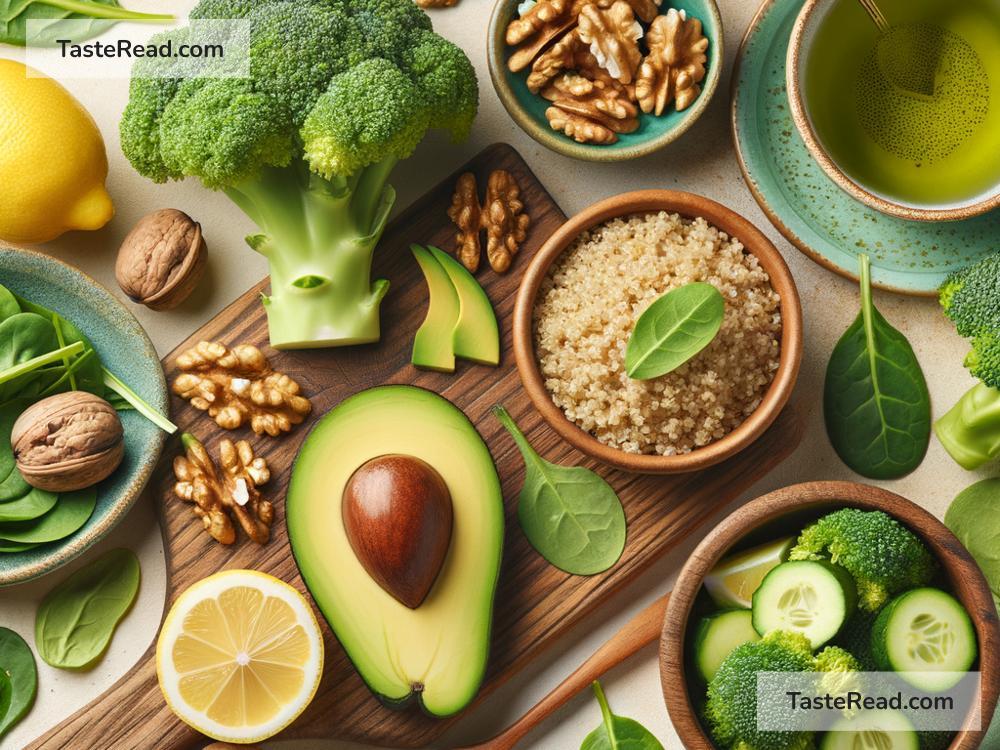Foods for Reducing Change Resistance: Boosting Your Mind and Body for a Positive Outlook
Change is a natural part of life. It brings growth, new opportunities, and fresh beginnings. But let’s be honest—change can also feel overwhelming. Whether it’s a new job, a lifestyle adjustment, or a big move, many people resist change because it disrupts their routines and comfort zones. What’s fascinating is that your diet can play a role in how you approach and adapt to change. Eating the right foods can improve your mood, reduce stress, and enhance your brain’s ability to manage change.
In this blog, we’ll explore simple, tasty foods that can help strengthen your mindset so you can embrace change with more ease and positivity.
How Food Impacts Your Mindset
The connection between food and your mental state is real. Certain foods are packed with nutrients that support brain health, improve mood, and ease anxiety. When your mind is calm and focused, you’re better equipped to handle challenges—like adapting to change.
Resistance to change often comes from fear, stress, or doubt. By eating foods that nourish your body and mind, you can reduce these negative emotions and build resilience. Think of food not just as fuel for your body, but as a tool to help you grow mentally and emotionally.
Let’s dive into what you should eat to become more open and adaptable to change!
1. Fatty Fish: Brain Boosters for Clarity and Calm
Fatty fish like salmon, mackerel, and sardines are rich in omega-3 fatty acids. Omega-3s are known to improve brain health and reduce inflammation, which can help with stress management. These healthy fats also aid in the production of serotonin, a “feel-good” hormone that keeps your mood balanced.
When facing change, a clear and calm mind makes a big difference. Include fatty fish in your meals two to three times a week to strengthen your mental resilience. Not a fan of fish? Try alternatives like flaxseeds, walnuts, or chia seeds—they also contain omega-3s.
2. Dark Chocolate: A Sweet Stress-Reliever
Good news for chocolate lovers! Dark chocolate (at least 70% cocoa) is not only delicious but also packed with antioxidants and magnesium. Magnesium can lower stress, ease muscle tension, and help you relax. Dark chocolate also stimulates the release of endorphins, the hormones that make you feel happy.
When change feels overwhelming, nibbling on a small piece of dark chocolate can give you instant stress relief. However, moderation is key—too much sugar can have the opposite effect on your mood.
3. Leafy Greens: Nature’s Mood Lifters
Leafy greens like spinach, kale, and Swiss chard are loaded with folate, a B-vitamin that plays an important role in mental health. Studies show that folate can reduce symptoms of depression and anxiety, making it easier to face challenges with a clear head.
Greens are also high in fiber, which supports gut health. Since the gut and brain are closely connected (a concept known as the “gut-brain connection”), eating more greens can have a positive impact on your mental state.
4. Nuts and Seeds: Energy for Emotional Balance
Nuts and seeds like almonds, pumpkin seeds, and sunflower seeds are great sources of vitamin E, magnesium, and healthy fats. These nutrients support brain health and stabilize energy levels throughout the day, which helps you stay emotionally grounded.
High stress during times of change can zap your energy, making you feel tired and irritable. Snacking on a handful of nuts or seeds can keep your mood steady and your focus sharp.
5. Whole Grains: Building Blocks for Positivity
Whole grains like quinoa, oats, and brown rice help regulate your blood sugar levels and provide steady energy. They’re also rich in B-vitamins, which play a crucial role in brain function and stress management.
If you feel sluggish or overwhelmed when dealing with change, whole grains can give your body and mind the boost they need. Swap white rice and white bread for whole-grain versions to keep your energy consistent.
6. Fruits: Natural Mood Enhancers
Fruits like bananas, berries, oranges, and kiwis contain vitamins and antioxidants that improve brain health and mood. Bananas are particularly good for reducing stress because they contain potassium, which helps regulate blood pressure. Berries, on the other hand, are rich in antioxidants that fight stress-related inflammation.
Adding a variety of fruits to your daily diet is a simple and refreshing way to support your emotional health.
7. Herbal Teas: Calm in a Cup
Herbal teas like chamomile, green tea, and peppermint are soothing and can help reduce anxiety. Chamomile is especially popular for its calming properties, while green tea contains an amino acid called L-theanine, which promotes relaxation without making you drowsy.
Sipping on warm tea can be a comforting ritual when adjusting to change. Plus, it hydrates your body, which is essential for staying mentally sharp.
Adapting to Change Starts With Self-Care
Life will always throw challenges your way, but how you respond is what matters most. Eating nutritious foods is one of the easiest ways to support your mental health and make change less intimidating. To reduce change resistance, focus on eating wholesome meals rich in omega-3s, vitamins, antioxidants, and calming nutrients.
Remember, change is an opportunity for growth. By nourishing your body and brain with these foods, you’ll be better prepared to face change head-on—and maybe even embrace it. Take care of yourself, one bite at a time!


